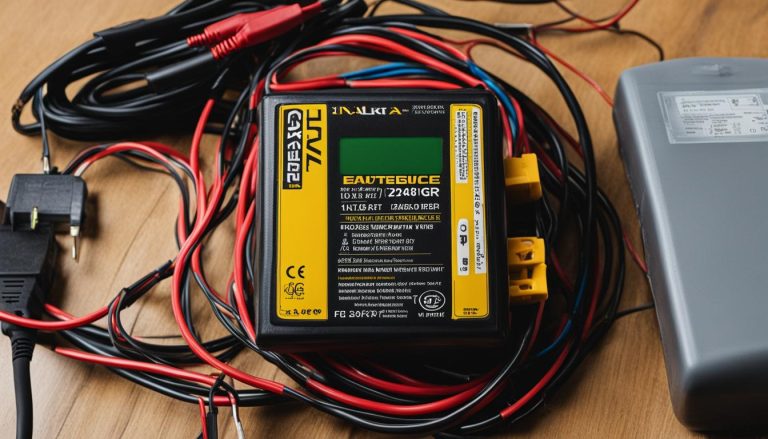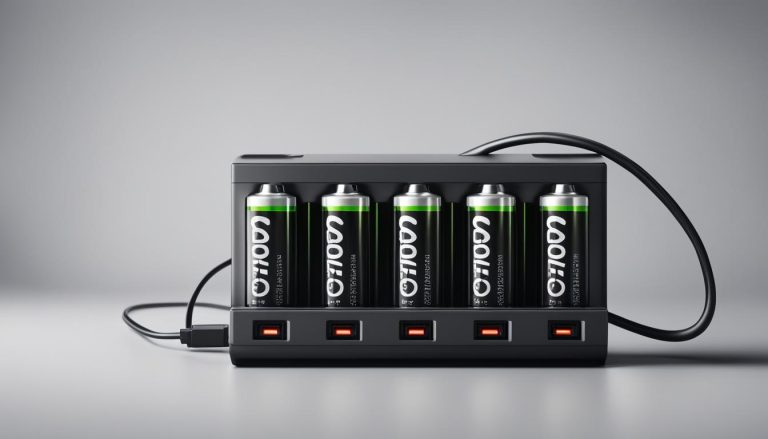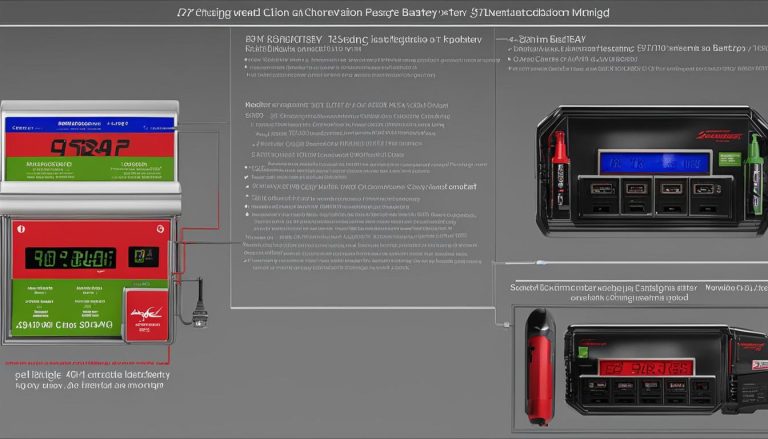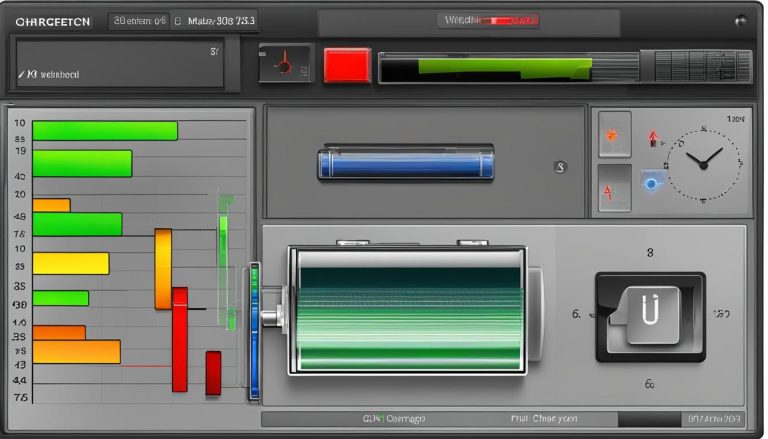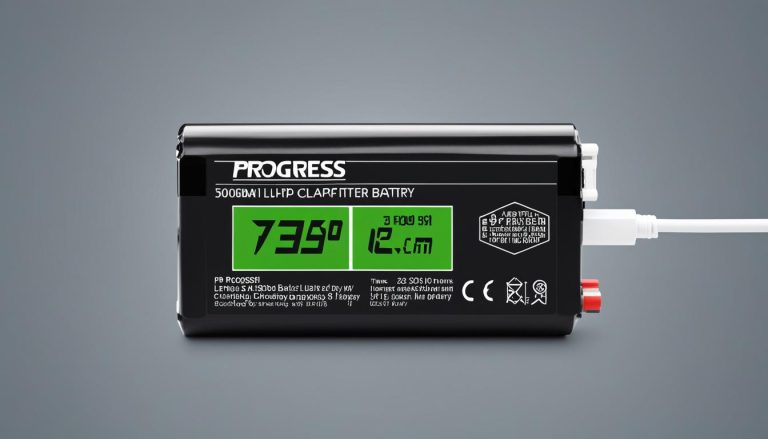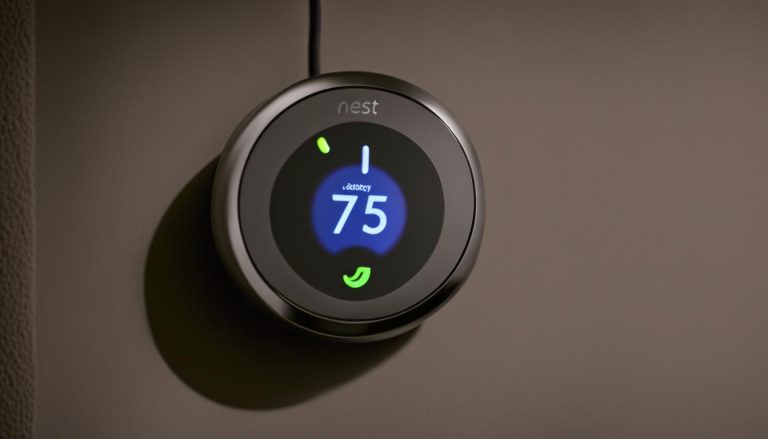Charging Time for Lithium Ion Batteries Explained
batterychargers.site and its partners may earn a commission if you purchase a product through one of our links
Are you wondering how long it takes to charge a lithium-ion battery? Understanding the charging time for these batteries is important, whether you’re using them in portable electronics, power tools, or electric cars. In this article, we’ll explain the factors that influence lithium-ion battery charge time and provide some best practices for efficient charging.
Lithium-ion batteries operate differently than traditional lead-acid batteries. While charging and discharging a battery is a chemical reaction, lithium-ion batteries are the exception. They require a voltage-limiting device called a Li-ion charger, which has higher voltage per cell and tighter voltage tolerances compared to lead-acid systems.
When charging a lithium-ion battery, it typically charges to around 4.20V per cell. To prolong battery life, it is recommended to charge at 0.8C or less. It’s also important to note that li-ion packs may experience a temperature rise of about 5ºC when reaching full charge.
Key Takeaways:
- Charging a lithium-ion battery requires a voltage-limiting device called a Li-ion charger.
- To prolong battery life, it is recommended to charge at 0.8C or less.
- Li-ion packs may experience a temperature rise of about 5ºC when reaching full charge.
- Full charge is reached when the current drops to between 3 and 5 percent of the Ah rating.
- Increasing the charge current does not significantly hasten the full-charge state.
Factors Affecting Lithium Ion Battery Charge Time
When it comes to charging lithium-ion batteries, several factors can influence the charging time. Understanding these factors can help you optimize the charging process and maximize the battery’s lifespan.
1. Charge Rate
The charge rate of an Energy Cell typically ranges between 0.5C and 1C. This means that charging the battery at a rate of 0.5 times its capacity or up to one times its capacity can provide efficient charging results.
2. Charging Efficiency
Li-ion batteries have an impressive charging efficiency of about 99 percent. This means that the vast majority of the electrical energy provided during charging is effectively stored in the battery as chemical energy.
3. Temperature Rise
During the charging process, lithium-ion batteries may experience a temperature rise of about 5ºC when reaching full charge. Monitoring the battery’s temperature is important to ensure safe and optimal charging.
4. Self-Discharge
Elevated self-discharge can affect the charging time of lithium-ion batteries. Minimizing self-discharge by storing the batteries in a cool environment can help reduce charging time and improve overall performance.
5. Voltage and Current Signature
The voltage and current signature of lithium-ion batteries during charging go through stages of constant current and topping charge. These stages are regulated by the charger to ensure accurate and controlled charging.
6. Full Charge Indicator
A lithium-ion battery is considered fully charged when the current decreases to between 3 and 5 percent of its ampere-hour (Ah) rating. This indicates that the battery has reached its maximum charging capacity.
7. Charge Current
Increasing the charge current does not significantly hasten the full-charge state of a lithium-ion battery. It’s important to follow the recommended charge rates to prevent overcharging and potential damage to the battery.
8. Optimal Charging Level
Unlike lead-acid batteries, lithium-ion batteries do not need to be fully charged. In fact, a lower voltage threshold can prolong battery life, although it may reduce the runtime. Choosing the optimal charging level depends on balancing runtime and battery longevity.
9. Consumer Chargers
Chargers for consumer products often prioritize maximum capacity and cannot be adjusted for extended service life. These chargers are designed to quickly charge a lithium-ion battery in a short period, typically within an hour.
To summarize, the approximate time it takes to charge a lithium-ion battery depends on various factors such as the charge rate, efficiency, temperature, and optimal charging level. By understanding these factors and following best practices, you can ensure efficient and effective charging for your lithium-ion batteries.
Charging Lithium Ion Batteries for Different Applications
Lithium-ion batteries are widely used in various applications, ranging from solar power kits to electric cars and power tools. These versatile batteries offer exceptional performance and durability, making them a popular choice in the market.
One important aspect of charging lithium-ion batteries is the concept of shallow cycle charging. This charging method is designed to allow the batteries to provide short bursts of energy without being used for extended periods before needing to be recharged.
Shallow discharge and shallow charging have similar impacts on the lifespan of lithium batteries. By avoiding deep discharges and partial charging, you can optimize the battery life and overall performance of your lithium-ion batteries.
One of the key advantages of lithium batteries is that they benefit more from shallow discharge and shallow charging compared to other battery technologies. By following these charging practices, you can ensure maximum efficiency and longevity for your lithium-ion batteries.
Table: Popular Lithium-ion Battery Charging Controllers
| Charge Controller Brand | Model |
|---|---|
| Victron Energy | SmartSolar MPPT |
| Victron Energy | Orion-TR Smart DC-DC isolated charger |
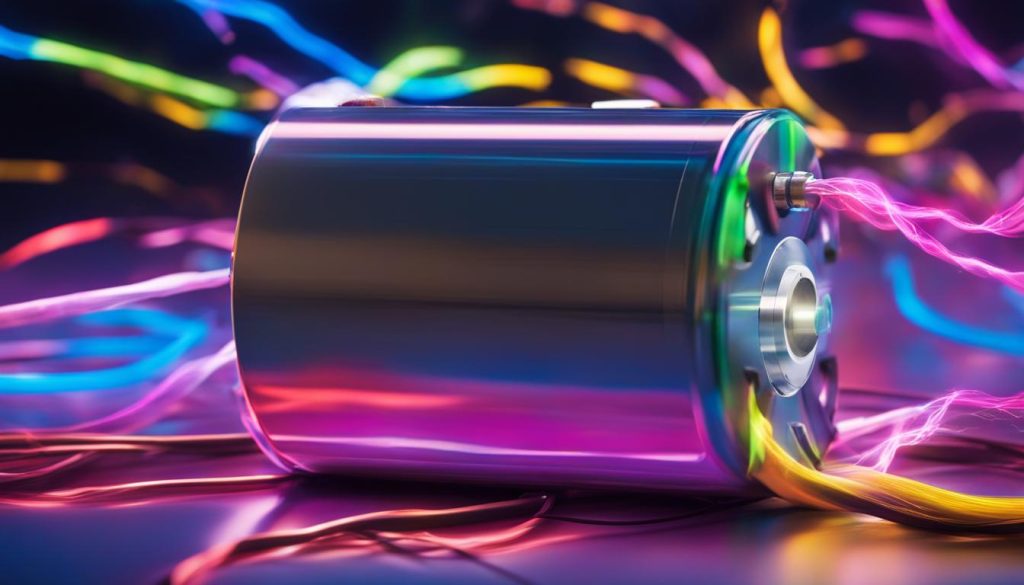
When it comes to charging lithium-ion batteries for different applications, you have several options. These batteries can be charged using solar systems, alternators, or shore power depending on your specific needs and circumstances.
If you are charging lithium-ion batteries with solar or alternator systems, it is recommended to use solar charge controllers or DC-to-DC chargers. These devices ensure efficient and safe charging of your lithium-ion batteries, optimizing their performance and longevity.
Lithium-ion batteries do not require float charging, making them easy to store for extended periods. This is a convenient feature for applications where batteries may not be used regularly, such as backup power systems or seasonal equipment.
Best Practices for Charging Lithium Ion Batteries
Proper care and charging practices are essential to maximize the lifespan and efficiency of lithium-ion batteries. By following these best practices, you can optimize the charging time for your lithium-ion battery and ensure efficient and effective charging.
Firstly, it is recommended to use partial discharge cycles and avoid deep discharges. This helps to maximize the battery’s overall lifespan. Additionally, avoiding high charge and discharge currents reduces stress on the battery, further enhancing its longevity.
To maintain optimal performance, it is crucial to limit the battery’s temperature and avoid charging below 0°C. Overcharging should also be avoided, and it is essential to use a suitable battery charger specifically designed for lithium-ion batteries to prevent damage.
When alternator charging, incorporating a battery isolation manager (BIM) prevents potential harm to the system. Furthermore, to preserve battery life, avoid running appliances off the battery bank when connected to shore power.
Remember to understand the differences between lead-acid and lithium-ion battery charging methods. For balancing series-connected battery systems, multi-bank charging is highly recommended. Parameters such as bulk/absorb voltage, float voltage, no equalization, no temperature compensation, and a 20-minute absorption time per battery should be considered for efficient charging.
Keep in mind that charging time for lithium-ion batteries varies depending on the specific charger in use and the current being delivered. By following these best practices, you can ensure optimal charging time, efficient charging, and prolong the overall lifespan of your lithium-ion batteries.
FAQ
How long does it take to charge a lithium-ion battery?
The charging time for a lithium-ion battery depends on several factors, including the specific charger in the system and the current being delivered. It can typically take a few hours to fully charge a lithium-ion battery.
What is the approximate time to charge a lithium-ion battery?
The approximate charging time for a lithium-ion battery is around 2-4 hours, but this can vary depending on the battery capacity and charging conditions.
What is the optimal charging time for a lithium-ion battery?
Charging at a rate of 0.8C or less is recommended to prolong the battery life. This means that the charging current should be 80% or less of the battery’s capacity.
How to charge a lithium-ion battery?
To charge a lithium-ion battery, you will need a compatible charger that provides the correct voltage and current for the battery. Simply connect the battery to the charger and let it charge until it reaches full capacity.
Can lithium-ion batteries be charged quickly?
Yes, lithium-ion batteries can be charged quickly. Some consumer chargers use a “charge-and-run” method that can fully charge a lithium-ion battery in one hour or less.
What is the charging duration for lithium-ion batteries?
The charging duration for lithium-ion batteries varies depending on the battery capacity and the charging current. On average, it can take a few hours to fully charge a lithium-ion battery.
How efficient is the charging of lithium-ion batteries?
The charging efficiency of lithium-ion batteries is approximately 99 percent. This means that very little energy is wasted during the charging process.
Do lithium-ion batteries need to be fully charged?
No, lithium-ion batteries do not need to be fully charged like lead-acid batteries. Partial charging is sufficient and can help prolong the battery life.
What are the best practices for charging lithium-ion batteries?
To optimize the charging of lithium-ion batteries, it is recommended to avoid high charge and discharge currents, limit the battery temperature, and use an appropriate charger specifically designed for lithium-ion batteries. Additionally, avoiding overcharging and using partial discharge cycles can help extend the lifespan of the battery.
Can lithium-ion batteries be charged with solar systems?
Yes, lithium-ion batteries can be charged with solar systems. Solar charge controllers and DC-to-DC chargers are recommended for charging lithium-ion batteries with solar power. Popular choices include the Victron Energy SmartSolar MPPT charge controllers and Victron Orion-TR Smart DC-DC isolated charger.
How long do lithium-ion batteries typically last?
Lithium-ion batteries have an average lifespan of 300 to 500 charge cycles. However, with proper care and charging practices, the lifespan of lithium-ion batteries can be extended.

